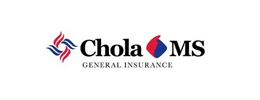Last updated on: September 19, 2025
Health insurance offers significant tax benefits, primarily through deductions and exclusions, making it a financially savvy choice for many taxpayers. Premiums paid for employer-sponsored health insurance are often excluded from taxable income, reducing overall tax liability. For those who purchase their own insurance, premiums can be deducted as a medical expense if they exceed a certain percentage of adjusted gross income, though this is subject to specific conditions. Contributions to Health Savings Accounts (HSAs) are tax-deductible, and withdrawals for qualified medical expenses are tax-free, further enhancing the tax advantages. These benefits not only lower taxable income but also incentivize maintaining health coverage, aligning financial health with physical well-being, and promoting broader access to necessary medical care.
Besides being important in care of unexpected medical cost which may incur to you and your family, health insurance is important because it enjoys substantial tax benefits under the Indian taxation laws. Learning about these advantages can assist you to make rational decisions regarding the acquisition of health insurance and maximising tax saving.
The main tax deduction that associates with health insurance in India is included in the Section 80D of the Income Tax Act. Here you can take the deductions of the premiums paid on the health insurance policies on yourself, family and parents. These deductions are not similar to the deductions that exist in Section 80C, where many more investment and expenditure areas are covered such as life insurance, the provident fund and so on.
Along the lines of Section 80D, there is a possibility to receive deductions on the paid health insurance policies. The following are specific details of the deductions one can make:
| Beneficiary | Maximum Deduction (₹) |
|---|---|
| Self, spouse and bonafide children | 25,000 |
| Parents (under 60 years) | 25,000 |
| Parents (60 years and older) | 50,000 |
| Maximum Deduction Possible | 1,00,000 |
Did You Know? In case you and your parents are both senior citizens, you can avail a total deduction of up to ₹1,00,000 in Section 80D.
To avail tax benefits of section 80D, you should fulfill some of these conditions:
Pro Tip: Keep the receipts and policy pages as records of payment and cover to clear the claim process without any hassle during tax filing.
Other tax savings tools like Public Provident Fund (PPF), National Savings Certificate (NSC) and Equity-Linked Savings Scheme (ELSS) are usually compared with the health insurance. This is how health insurance is unique:
| Instrument | Tax Benefit Section | Nature of Benefit | Max Deduction (₹) |
|---|---|---|---|
| Health Insurance | 80D | Deduction on the premiums paid | 1,00,000 (combined) |
| PPF | 80C | Non-taxable returns and maturity | 1,50,000 |
| NSC | 80C | Interest received is tax free | 1,50,000 |
| ELSS | 80C | Tax-free returns under conditions | 1,50,000 |
Expert Insight: Even though Section 80C allows a higher limit, health insurance under 80D is a necessity as a financial risk protector.
Did You Know? Some health policies also cover AYUSH treatments (Ayurveda, Yoga, Naturopathy, Unani, Siddha, Homeopathy).
Yes, there are:
Pro Tip: Read policy documents thoroughly to understand all conditions and exclusions.
Pro Tip: Assess your health needs and revise insurance as life stages change.
No, tax benefits under Section 80D apply only to self, spouse, dependent children, and parents.
Yes, preventive health check-ups are eligible for tax benefits up to ₹5,000 within the 80D limit.
No, only policies issued by insurers registered with IRDAI are eligible.
Yes, the total premium paid including GST is considered for tax deduction.
Health insurance is not just a medical necessity but a powerful tax-saving tool. By understanding Section 80D and planning your policies wisely, you not only protect your health but also enhance your financial well-being. Consult a certified financial advisor or tax consultant to tailor your insurance strategy for maximum benefit.
Yes, as long as total deductions fall within the limits of Section 80D.
You can claim a proportionate deduction each year for the duration of the policy.
No age limit, but deduction limits vary based on senior citizen status.
No, but you can claim deductions on additional personal policies.
Yes, if maternity is part of the health insurance policy, it is eligible under Section 80D.












How could we improve this article?
Written by Prem Anand, a content writer with over 10+ years of experience in the Banking, Financial Services, and Insurance sectors.
Prem Anand is a seasoned content writer with over 10+ years of experience in the Banking, Financial Services, and Insurance sectors. He has a strong command of industry-specific language and compliance regulations. He specializes in writing insightful blog posts, detailed articles, and content that educates and engages the Indian audience.
The content is prepared by thoroughly researching multiple trustworthy sources such as official websites, financial portals, customer reviews, policy documents and IRDAI guidelines. The goal is to bring accurate and reader-friendly insights.
This content is created to help readers make informed decisions. It aims to simplify complex insurance and finance topics so that you can understand your options clearly and take the right steps with confidence. Every article is written keeping transparency, clarity, and trust in mind.
Based on Google's Helpful Content System, this article emphasizes user value, transparency, and accuracy. It incorporates principles of E-E-A-T (Experience, Expertise, Authoritativeness, Trustworthiness).